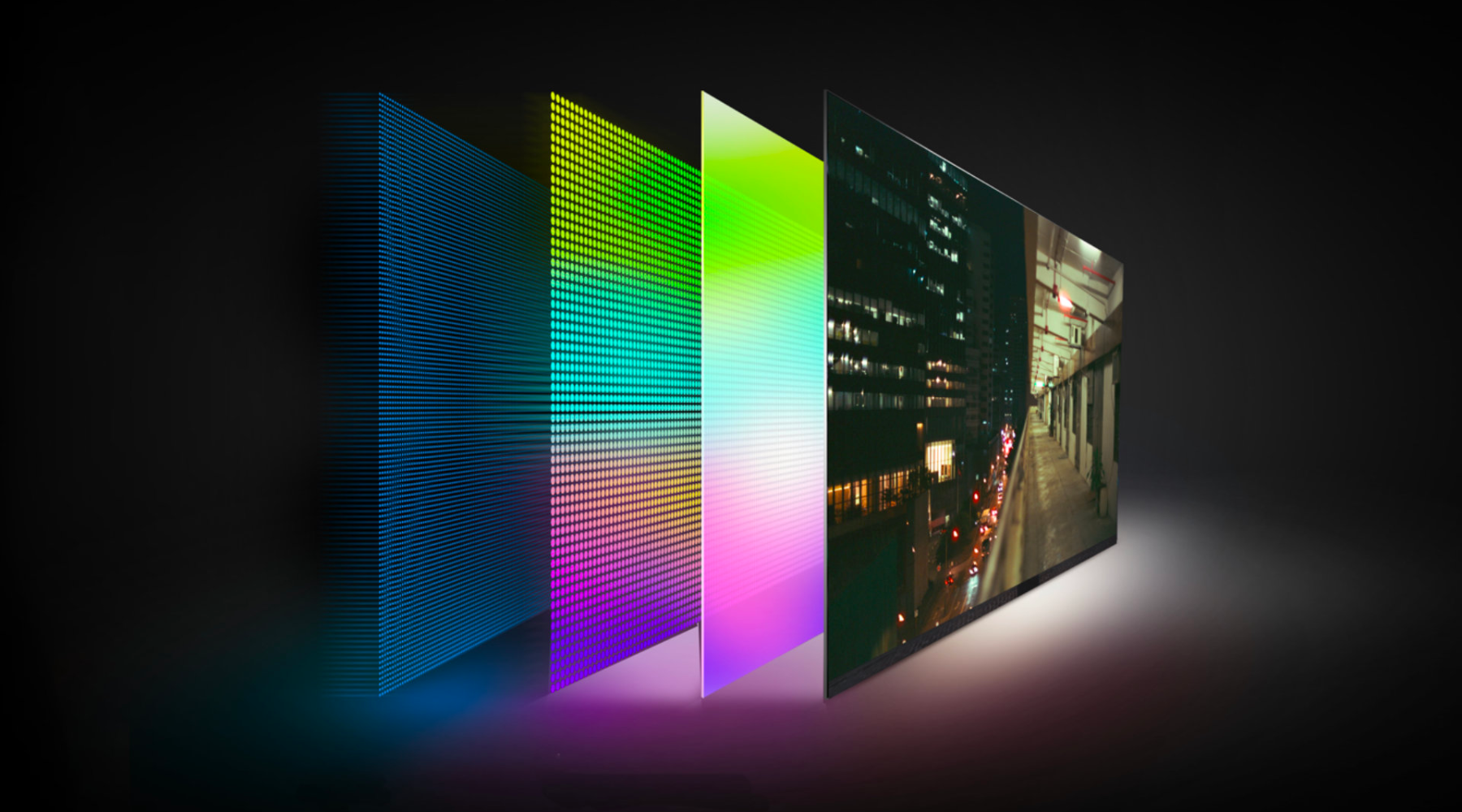Table of Contents
OLED vs QLED: Which TV Display Technology Should You Get?

If you're looking for a new TV, you've probably come across terms like OLED and QLED – two of the most popular display technologies which offer different benefits depending on your needs.
In this article, we'll break down these technologies for you to understand the differences better so that you can make an informed decision.
First, let's define the terms. OLED stands for Organic Light Emitting Diode, while QLED stands for Quantum Dot Light Emitting Diode.
Both technologies use LEDs to create an image, but they differ in how they do it.
What is OLED TV?
OLED (Organic Light Emitting Diode) is a display technology that uses organic compounds to create images on the screen. Each pixel in an OLED screen emits its own light, allowing for deeper blacks, vibrant colours, and excellent contrast.
Because OLED pixels can turn on and off independently, they also offer excellent contrast and fast response times.
OLED screens have become increasingly popular in recent years due to their impressive picture quality, and they're a great choice for movie and TV enthusiasts who want the best possible viewing experience.

OLED screens are also known for their slim profiles, making them a popular choice for wall-mounted installations.
You can enjoy this viewing experience with the PRISM+ Alpha Series in both a 55 inch TV and a 65 inch TV.
Pros & Cons of OLED
| Pros | Cons |
|---|---|
|
Perfect blacks Wide viewing angles Vibrant colours Infinite Contrast Ratio |
Risk of burn-in Potential for image retention Price |
What is QLED TV?
On the other hand, QLED TVs is a newer technology that uses a layer of quantum dots to enhance the light produced by the LEDs.
QLED screens use a backlight to illuminate the pixels, and the quantum dots help to produce more accurate colours and brightness levels. This results in brighter images with more saturated colours.

This makes the PRISM+ QLED Ultra Series TVs a great choice for bright rooms, as they can overcome ambient light to produce a clear and vivid image.
If you are placing it in your living room where it tends to be brighter, you can even get the PRISM+ Q75 Ultra to get the maximum viewing experience.
Pros & Cons of QLED
| Pros | Cons |
|---|---|
|
Brightness No risk of burn-in Affordable Longevity |
Limited viewing angles Less contrast Less vibrant colours |
QLED vs OLED: Which is Better?
So, which one is better? It really depends on what you prioritise in a TV.
You can find below, a summary table for you to make a better decision.
| If you want to get an OLED TV | If you want to get a QLED TV |
|---|---|
|
|
Basically, if you value deep blacks, wide viewing angles, and fast response times, OLED is the way to go.
But if you want the brightest possible image with the most vivid colours, QLED is the better choice.
If you're interested in a high-quality and affordable TV that offers both OLED and QLED technology, PRISM+ is the brand to go to. You can rest assured that the TVs will enhance your viewing experience, whether you're a movie buff, sports fan, or gamer.
FAQs
|
Is OLED better than QLED? Both OLED and QLED have their strengths. OLED offers superior contrast and deep blacks, while QLED provides brighter HDR performance and a wider colour range. The choice depends on your specific needs and preferences. Can OLED TVs suffer from burn-in? Yes, OLED panels are susceptible to burn-in, especially when static images are displayed for extended periods. However, with proper usage and precautions, the risk can be minimized. Are QLED TVs more affordable than OLED TVs? Generally, QLED TVs are more affordable than OLED TVs. However, prices may vary depending on the brand, model, and specifications. Which TV technology is best for gaming? Both OLED and QLED can deliver excellent gaming experiences. OLED offers fast response times, deep blacks, and vibrant colours, while QLED provides bright and vivid visuals suitable for gaming in well-lit environments. How do I choose between OLED and QLED? Consider factors such as contrast ratio, viewing angles, HDR performance, price, and personal preferences. It's recommended to compare both technologies in person and evaluate their performance before making a decision. |


